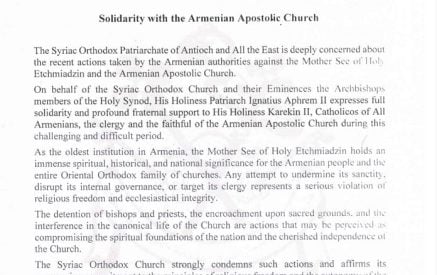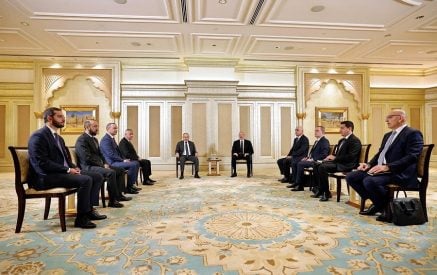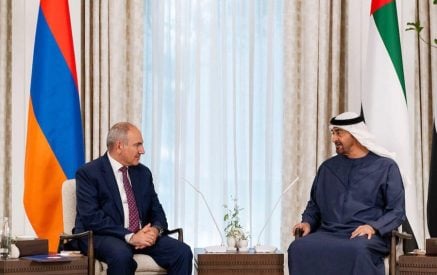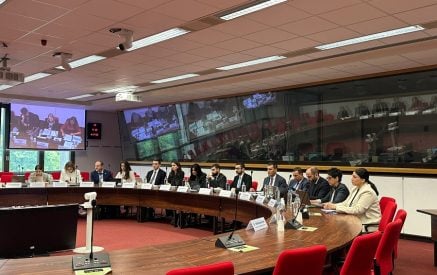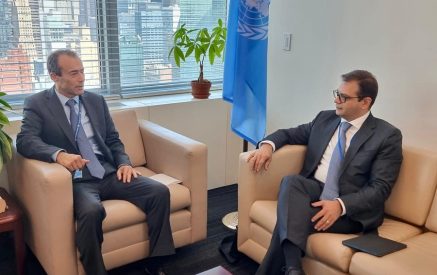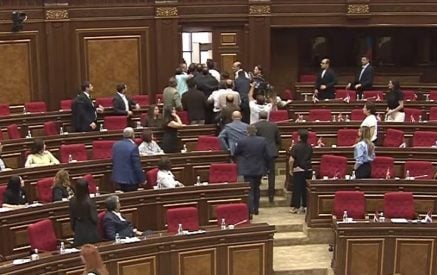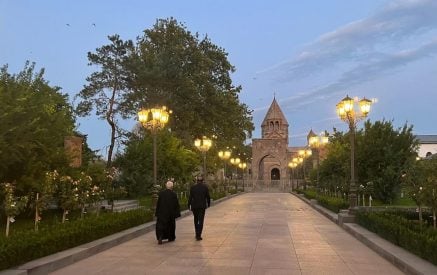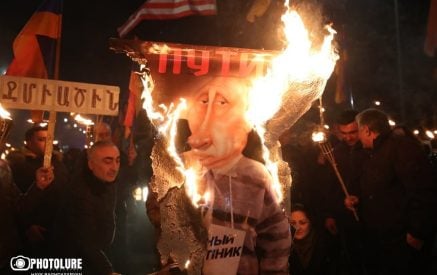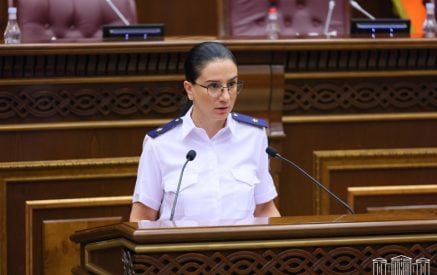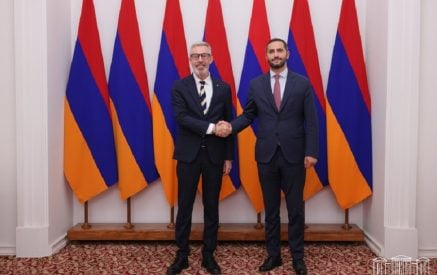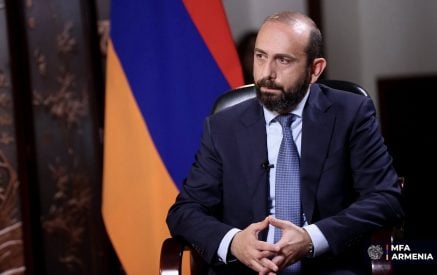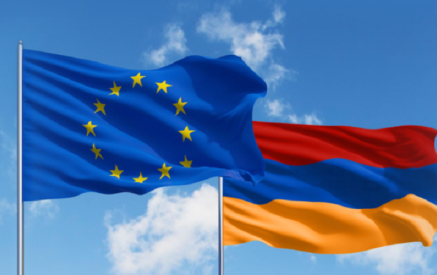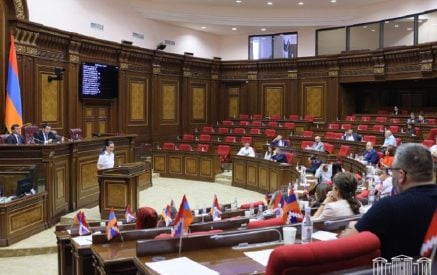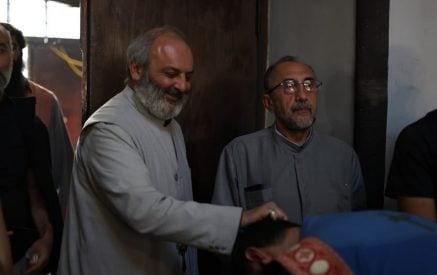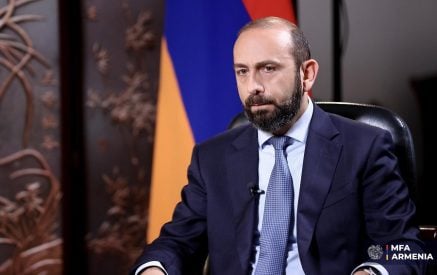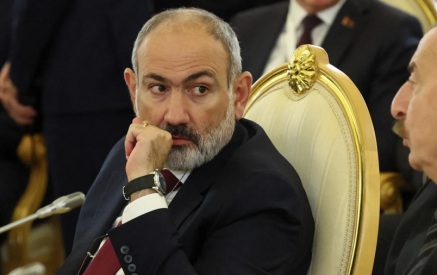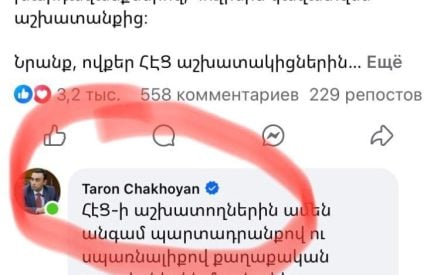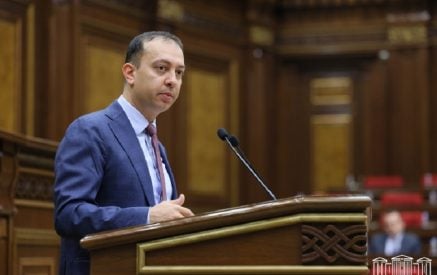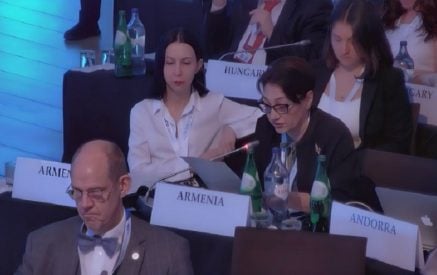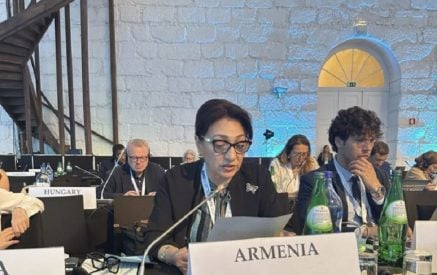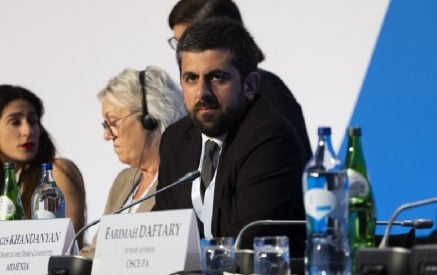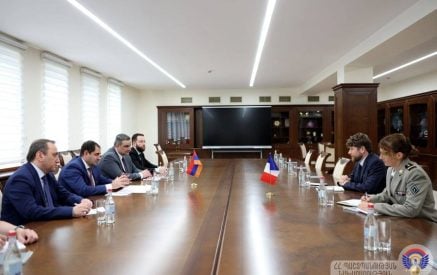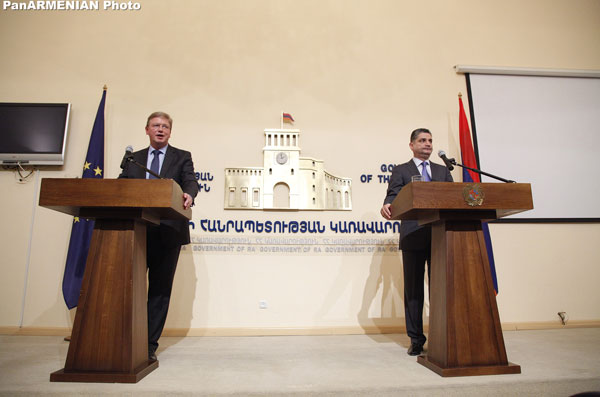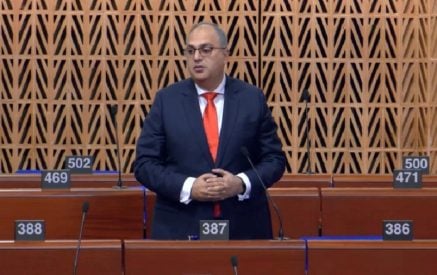If “they have not invited”, was it necessary to blow up the initialing of the EU Association Agreement?
Yesterday, in the PACE autumn session, PACE delegates asked a question to the President of the Federal Assembly of the RF State Duma Sergey Naryshkin whether the RF exerts pressure on former Soviet states by restricting their future cooperation with the EU. Naryshkin countered, “RF, as well as CU member countries – Belarus, Kazakhstan, are interested by the fact that this economic union is broader,” then added that eventually CU member countries, as well as Ukraine, are sovereign states, and their leaders and the public decide on themselves as to where to enter and what decision to make. “There can be no talk of pressure, RF has just introduced these countries to the world as to what they can benefit by joining the CU, and what consequences they may have on signing the Association Agreement.”
In other words, indirectly, the Russian official has confirmed about the “consequences”, hinting that pressure, however, occurred. Yesterday, however, the Prime Minister Tigran Sargsyan in Saint Petersburg has qualified Armenia’s decision to join the CU an event of “fundamental importance”. “No one has invited us to the Customs Union. Armenia decision adopted in favor of the Customs Union was fully conscious and prudent step,” he said, adding, “On the one hand, there is a historical experience behind it, on the other hand, a cold calculation aimed at creating such conditions that are fully consistent with our national interests. Integration unions should be built not based on political objectives, but on other economic targets.”
Let’s leave aside the fact that the Prime Minister before Armenia’s sudden statement to enter into the CU, was almost proving the opposite and assessing Armenia’ membership to the CU meaningless. However, when the authorities claim that no one “has invited” Armenia to the CU, a simple question arises, then, based on what studies the decision was made to join the CU. If any such study exists that proves the interest of Armenia, and that it is more prevalent in joining the CU than, for example, signing of the EU Association Agreement and entering into the European Union’s free market, then will the RA authorities finally present these data to the public?
Read also
Or, does it mean no one “has invited” Armenia to CU … In other words, does Armenia, being RF’s strategic ally, feels obliged to be represented in any project planned by RF, regardless of whether it will become a viable structure or not?
In addition, the simplest question that occurs in the human mind, is the following, if they have not invited, was it necessary to blow up the initialing of the EU Association Agreement and without an invitation to join the Customs Union, the future of which already raises serious doubts?
As recently reported by News.am, referring to “Rosbalt” newspaper, a large-scale campaign was launched in Kazakhstan with regard to leaving the CU. The activists call for referendum and conducted a rally of initiative group in Almaty, which was attended by about 500 people. Now, the
supporters for Kazakhstan to leave the CU need to collect 200 thousand signatures to be considered on the issue of holding a referendum. Public figures, representatives of the civil sector have published a call to the authorities on refusing to join the Eurasian Union. Young people are especially active. In their opinion, Kazakhstan’s accession to the European Union is “a great intimidation to the Kazakh statehood”, and will not bring any economic or political benefit to the state.
The Vice Minister of Economy and Budget Planning of Kazakhstan Timur Zhaxylykov noted that the Republic expected from the integration processes increase of consumption of goods, an “outrageous” growth of employment and operation of industrial capacities, but it has not happened so far. The Minister of Finance Bolat Zhamishev stated that the exports of Kazakh product to RF and Belarus is significantly reduced, and after the creation of the Customs Union, the trade balance is changed to the detriment of Kazakhstan. And, now it comes the issue of appropriateness to recruit the CU with economically weaker players, like Kirgizstan, and Armenia. Won’t they get on the neck of RF, Belarus and Kazakhstan, whose economic potential of already declining, and whether financial-economic crisis of those “weak” will not affect the welfare of the most powerful members of the CU, as the situation with Greece on the overall situation of the EU.
And two weeks ago the experts of the report of “Da Vinci AG” Analytic Group stated that the situation has aggravated in the CU agricultural machinery market, in which the Belarus manufacturers have almost pushed the Russian factories and block the decision on reducing the tariffs of high-quality outdoor equipment. “The recommendations of Russian companies are discriminatorily rejected at the phase of the tender, or remain unclaimed for the Belarusian side” with the reasoning of “lack of demand for equipment”. Within the framework of the Common economic space, Russian machinery manufacturers have confronted with violation of the fundamental principles of the state and municipal procurement agreement, and with unwillingness of the Belarusian side to participate in the tender,” says in “Da Vinci AG” report, noting that as a result, this year, the factories “Krasnoyarsk combine” and “Leselmash” (Krasnodar) have announced about their shutting down, which resulted in losing of more than 1,000 jobs.
In addition, it is noted that Eurasian Economic Commission rejected Kazakhstan to define a special quote for importing combines to this country with the old customs tariffs reasoning that the decision is not appropriate for defining tariff quotas for exporting wheat thrashing combines. Experts insist that such discrimination exist in other fields as well. The report also says that, in RF, attempts have been made to limit the acquisition of fabric for producing uniforms, and in Belarus, similar cases have been taken place in the construction sector by the state order, and according to Kazakh business representatives, some enterprises dealing with the food processing have no opportunity to enter the Russian market since non-tariff regulation measures are applied.
These are the latest developments around CU. As to what events of “fundamental importance” RA authorities see in all this, what appropriate steps of “historical experience” and to “national interests” of our country they see behind the CU, perhaps the specific results will be seen more clearly in the future.
Emma GABRIELYAN


